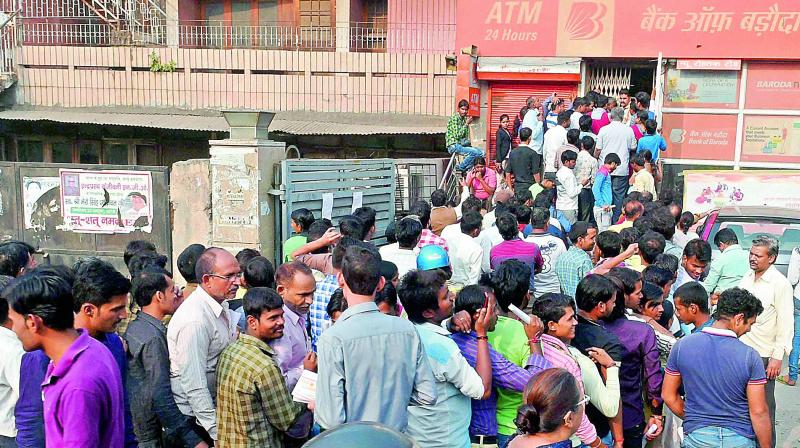Note ban: Hawala transactions drop by 80 per cent, says Intelligence Bureau

New Delhi: Hawala transactions have dropped by as much as 80 per cent across major centres such as Delhi, Jaipur, Ahmedabad and Mumbai as operators have gone underground since the Centre’s decision four days ago to demonetise larger bills, the Intelligence Bureau (IB) has said.
Prime Minister Narendra Modi made a shocking announcement on Tue-sday, withdrawing Rs 1,000 and Rs 500 notes from circulation to beef up India’s fight against black money.
“In the last three days, there has been virtually no hawala transactions between Gulf countries and the Kashmir Valley,” said the IB in its classified report submitted to the Union home ministry on Friday evening.
Hawala transactions work on trust and word-of-mouth, and for a fee. Cash delivered in one place can be made available elsewhere within minutes bypassing banking channels and leaving no paper trail.
The drop is significant because money laundered through hawala channels is used to finance terror, drugs cartels, besides bribery and circulation of fake currency.
The home ministry had asked central agencies such as the IB and the National Investigation Agency (NIA) to monitor the impact of the government move which aims to target terror funding and circulation of fake currency notes.
Both the IB and the NIA are conducting a detailed investigation hawala funding of Kashmir’s ongoing unrest sparked by the killing of militant commander Burhan Wani in July.
More than 90 people have been killed and thousands wounded in clashes between protesters and security forces in the Valley. The agencies have identified certain suspicious accounts in which hawala money was deposited through a Gulf route.
“Hawala operators are fearing a major crackdown on their operations by security forces. Operators do not want to risk accepting the spiked notes. Surveys and searches by the Income-Tax department have also had an impact,” said the report.
Sources said Intelligence agencies will continue to monitor the impact of demonetisation even after the current cash crunch eases.

